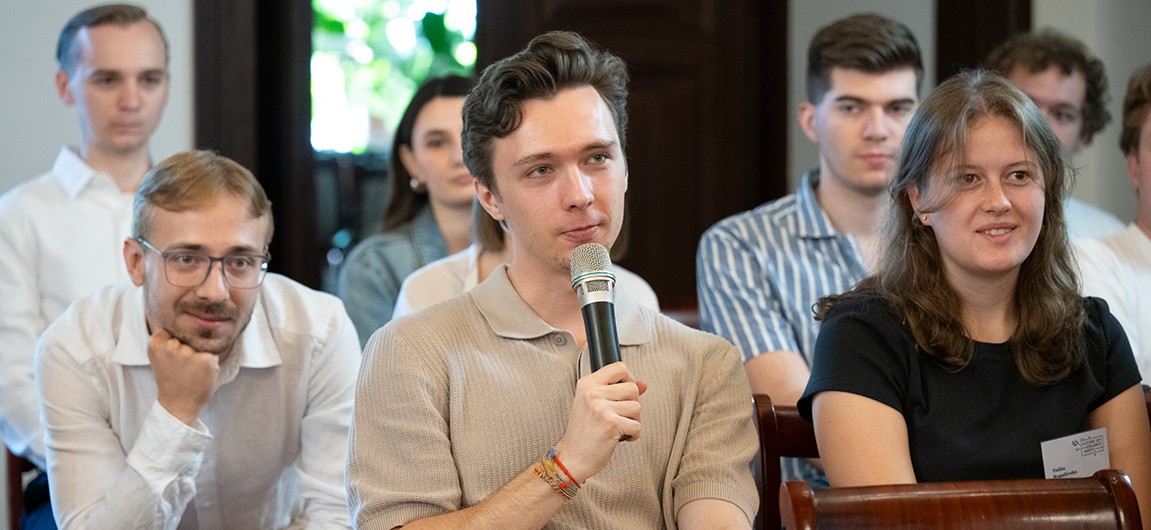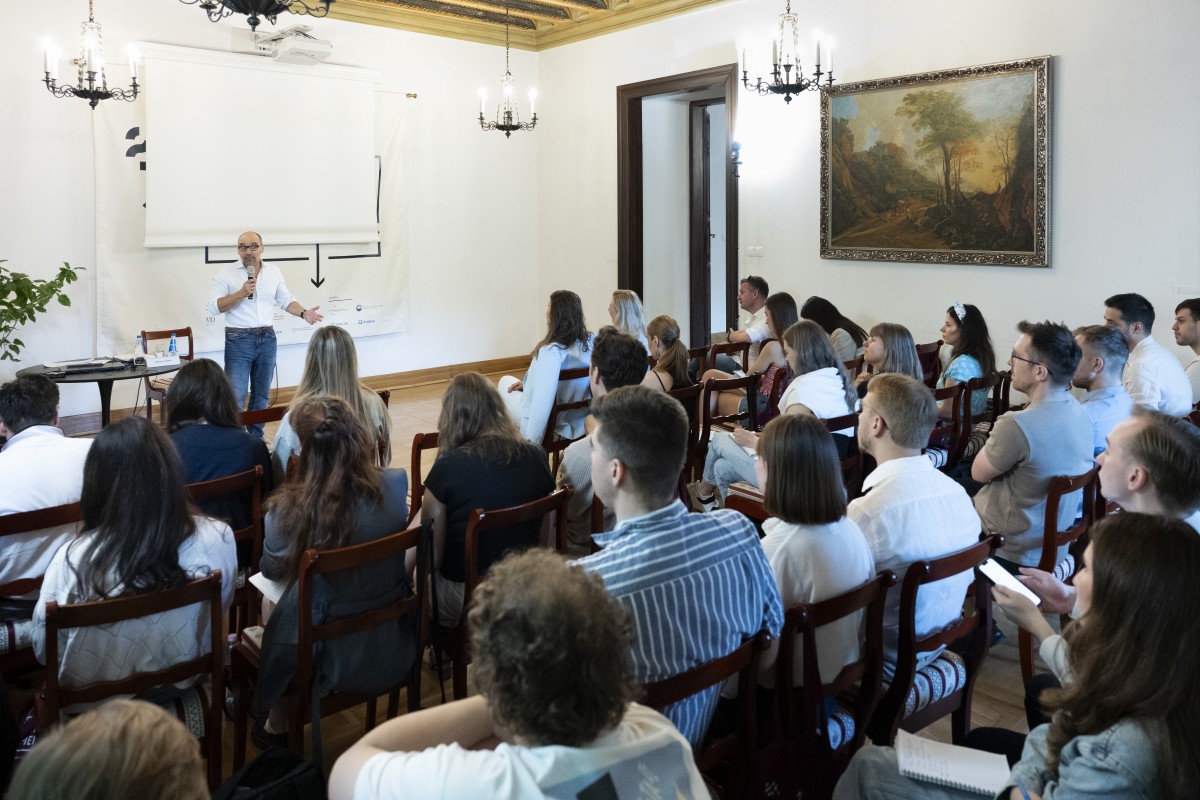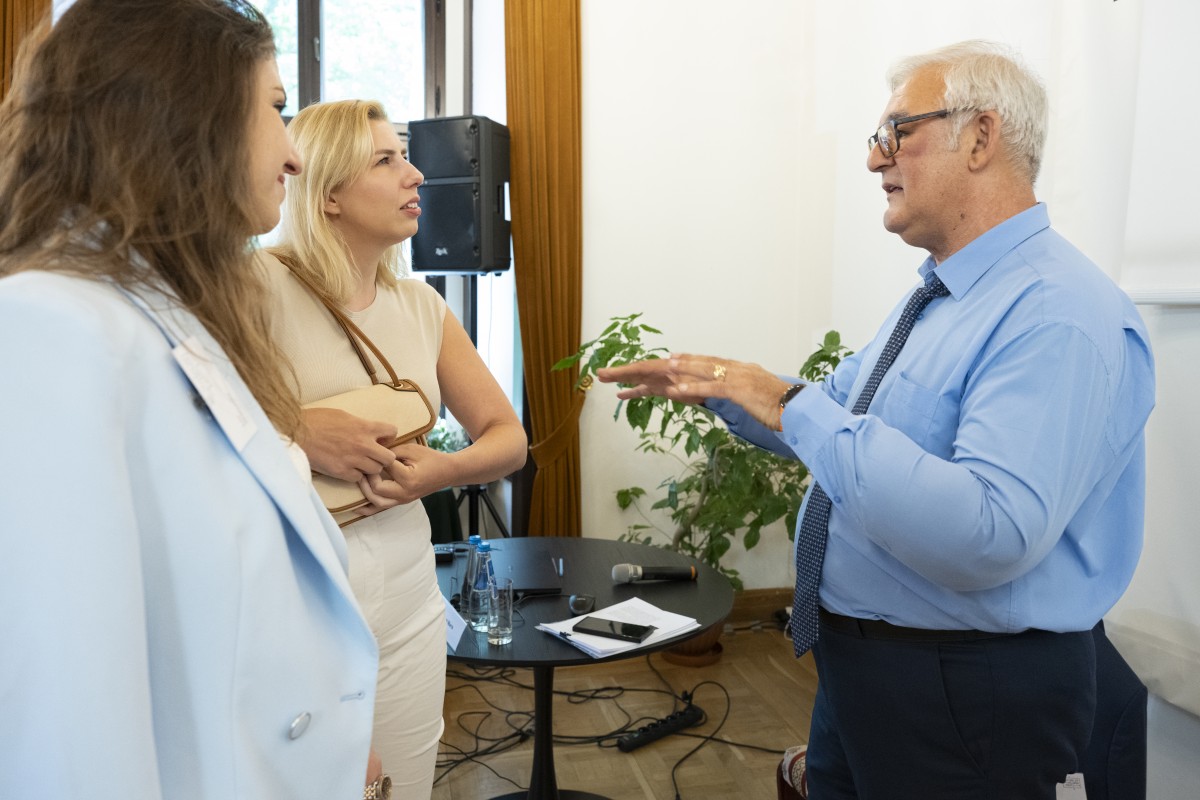
The conversations and questions deepened as we entered Day 4 of the 23rd VSS. Participants tackled the complexities of EU enlargement through dynamic sessions led by distinguished regional experts, navigating topics from Eastern Partnership to Western Balkans diplomacy.
- Balazs Jarabik(Political Analyst and diplomat) opened the day with the lecture “Adaptation and Integration: Impact of Russia's war in Ukraine on the Eastern Partnership.” His talk dissected the past, present, and future of the Eastern Neighbourhood Policy, exploring topics like Russian warfare, military nationalisation, the normative power of the EU, and shifting regional dynamics. Participants engaged in an active Q&A touching on Armenia, Azerbaijan, and Belarus, as well as transatlantic influences shaping the region’s future.
- In the second session, Gjergj Murra (Executive Director of the Western Balkans Fund) presented “The Role of the Western Balkans in Shaping Europe’s Future.” His lecture offered essential political and economic context and explored the region’s European path. With a strong emphasis on cross-border cooperation and investment potential, Gjergj Murra introduced the work of the Western Balkans Fund and its role in translating shared goals into real-life partnerships.
- Natasza Styczyńska (Ph.D. in Political Science, Instytut Studiów Europejskich UJ) then took the Balkan lens in her lecture “EU Enlargement through Balkan Eyes: Unity and Diversity of Views.” Drawing on political, legal, and economic realities, she unpacked how the Copenhagen criteria shape public perception across the region. From frontrunners to laggards, she highlighted that no two candidate paths look the same, and neither do their citizens’ views on EU integration.
-
Closing the academic day, Michal Vit (Assistant Professor, Metropolitní univerzita Praha) led the “Enlargement Policy Towards the Western Balkans: Strategy, Tools, Interests – Case Study of the Czech Republic.” Taking the audience behind the scenes of Czech foreign policy, Michal Vit discussed institutional tools, national interests, and the current balance between domestic politics and enlargement commitments. A follow-up exchange with a Ukrainian participant deepened the reflection on how Russia’s war has reshaped perspectives on enlargement across the continent.
With every question, perspective, and challenge raised, it’s clear that this group came to learn and contribute. As the week unfolds, so does the depth of the dialogue.















